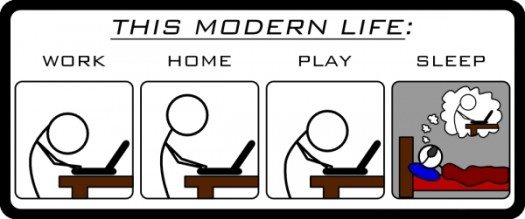Over October half-term I wrote a blog about how teachers could reconnect with themselves as people, in order to start looking for that elusive work-life balance thingy they all talk about. As we approached New Year and I indulged in the usual reflections about the year, I came to two conclusions:
1) 2014 had been extremely kind to me and my family;
2) My job as a teacher hadn't dominated my thoughts about how good the year had been.
There are lots of ways to read that, but I think it means that for me, considering what an excellent year it had been professionally (ALPS1/2 for A levels, FFTD for GCSE, major show within the Faculty, and lots of particular success stories for individual students which, while they didn't look overwhelming on paper, were significant milestones for them personally), I had also managed not to make my work the be-all and end-all of my perception of happiness. Other things have mattered more, and I think that's a great thing. Maybe it even represents personal growth. Wow.
Anyway, for this quick New Year's post, I thought I would share a few of the fundamental principles I've found helpful in the search for that balance, for no other reason than the fact that, in my opinion, a balanced, healthy teacher is a more effective teacher. Here goes...
1) Remember that some jobs are fundamentally incompatible with day-to-day family engagement: Accept this and work around it
2) Never put the quality of your life in the hands of someone else: You won't like their version of what your balanced life should look like
3) Elongate the timeframe in your search for balance: think about it over a term rather than a day or a week: What does your ideal term look like?
4) Make sure that your balance contains elements which nurture you physically, emotionally, spiritually and intellectually
5) Sweat the small stuff rather than big gestures: There is a huge difference in perception between how important you think a big gesture is, and how important others think it is. There is often a similar disparity between what you might think of as a little thing, and how much help it has been to someone else. Apparently, my offering to do someone's detention duty for them in the last couple of weeks of last term was a gesture which meant a massive amount to them at the end of a crippling term.
6) On that theme, be kind: Not just generally a nice person. Look for opportunities to bestow kindness on others, without judging how deserving they are. Do it in secret as much as in public: The well-being benefit is as much for yourself, and these acts come back to you all the time. Actually looking out for the kind things other people do for you is equally a great way to become a more positive person: It takes your focus away from the negative, and it helps you deal with it much more successfully when the negatives arise.
That's it. Short but sweet. I hope that 2015 is your happiest, most balanced year yet.
 |
| Copyright: Scott Adams, Inc. |
